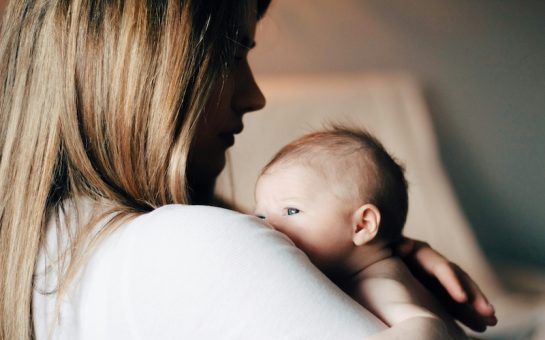Relaxing on her bed one evening after another day holidaying in Malta with a friend, 34-year-old Sophie Hughes-Onslow happened to rest her hand on her stomach and felt a pronounced, golf ball-sized lump.
“You couldn’t see anything when I was standing up, but over the next few days my stomach felt really sensitive — as though it was blown up like a balloon,” she recalled.
“Two days later, my friend’s two-year-old son was bouncing on my bed and landed on my stomach. I nearly hit the ceiling as it was incredibly uncomfortable.”
Back in the UK Sophie, 39, visited her GP who referred her to Chelsea and Westminster Hospital where an appointment was made for an MRI scan five days later.
In the meantime she returned to her job as an art gallery manager and tried to put it to the back of her mind, but was constantly reminded about it due to strange symptoms she experienced.
“I felt as though there was something pressing down inside me when I sat down.
“It was a very busy job, I was running up and down three flights of stairs at the art gallery, and thought the tiredness was to do with that.
“I was exhausted, going to bed at 9.30pm and getting up at 7.30am and still not feeling great.
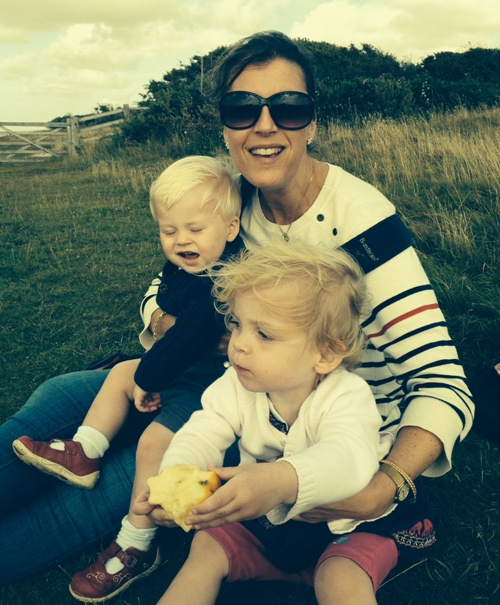
“I was also getting up to go to the loo four times a night – I just knew something was badly wrong.”
Sophie was so concerned she decided not to wait for her appointment and went to A&E.
“My mother had suffered from bowel cancer and had twice been dismissed by her GP, who was convinced she had haemorrhoids,” Sophie explained.
“But she had insisted on being referred to a specialist who diagnosed bowel cancer and she underwent an operation to remove part of her gut.
“She’s been well ever since but this made me very aware of the importance of acting quickly where your health is concerned.
“My mum is quite feisty so I’ve never been frightened of facing things – the most important thing in life is your health.”
At A&E Sophie was advised to go home and wait for her appointment but, like her mum before her, she refused to leave without being seen by a doctor.
“I explained all of my symptoms to the doctor at A&E who was really offhand. I said it was outrageous and I wasn’t going anywhere and essentially told them to get me a doctor right then.”
Eventually the head of A&E agreed to check her and the scan revealed a 12 cm lump at the bottom of Sophie’s abdomen, just below her left hip.
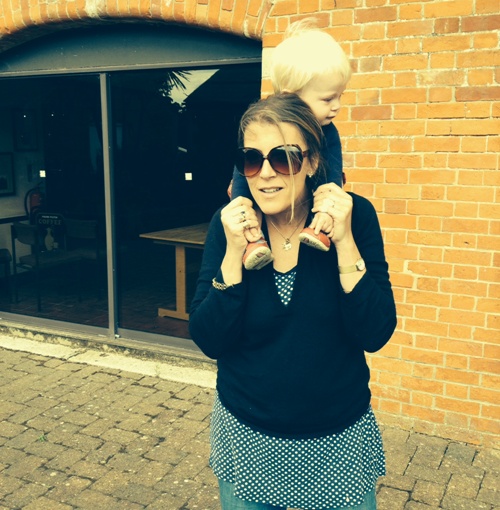
The doctor explained it was too early to know what was causing it and, as there were no spare MRI appointments that Friday, Sophie would have to wait until her appointment on Monday morning.
“I remember being very upset on the Saturday night and just wanted to be with my mum. On the Sunday I just thought ‘there’s nothing I can do about it and appeared quite calm, but then it all got really scary.”
The MRI scan showed the lump was an aggressive tumour and Sophie was told she would have to remove her left ovary along with the tumour, and that a hysterectomy might be necessary if it had spread.
“That moment my life changed. I had a job I loved, lots of friends and a wonderful boyfriend Ed.
“I was really frightened. I’d always wanted children so I was devastated. I spent most of the time waiting for my operation bawling my eyes out.
“I thought ‘I’m only 34, this can’t be happening to me’.
“Ed and I had been together for just a year. I told him I wouldn’t blame him if he wanted to walk away from the relationship but he kept telling me we would get through it together.”
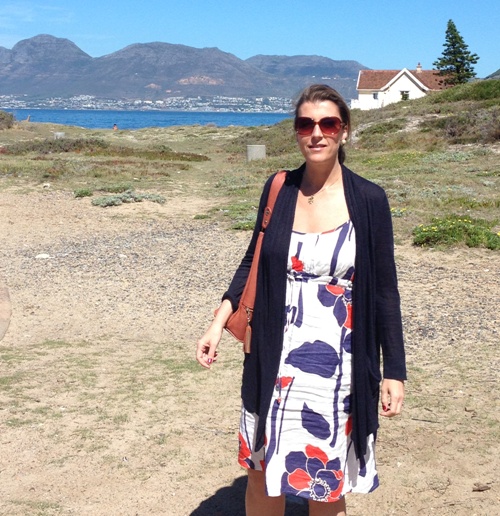
The tumour was so aggressive it grew a staggering six cm in the six days while she waited for her operation.
When she underwent surgery, three weeks after she first felt the lump, it was the size of a small football and weighed 5½ lb.
Fortunately, she did not need a hysterectomy.
The tumour was a rare type of ovarian cancer called dysgerminoma and after the operation Sophie was referred for three cycles of chemotherapy at the Royal Marsden Hospital in London.
By last Christmas, 18 months after her first symptoms, she was clear of cancer.
Sophie was one of the lucky ones because her cancer was detected early and just a few days ago she attended her five-year check-up which revealed she was still cancer free.
She is now married to Ed and has two children Flora and Jamie.
She added: “Every day is a gift. I want to support anything that will help women beat the situation I faced which, luckily for me, turned out to have a happy ending.
“When I was ill I was determined to give something back and thought ‘if I’m going to be ok I must raise money and awareness about it’.
“Since my recovery I’ve given talks in front of hundreds of women, which was terrifying at first, but it was really empowering and I really enjoyed it.
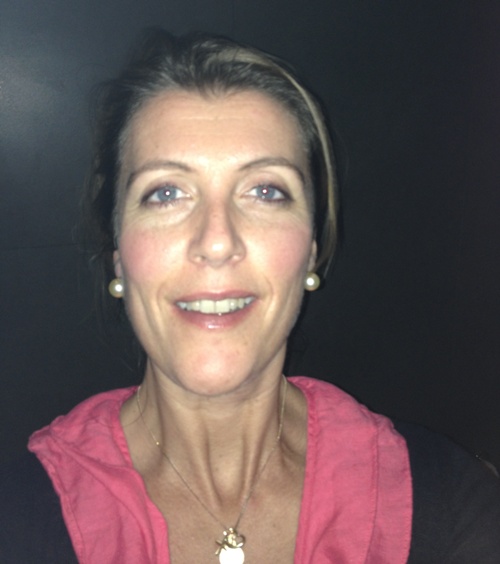
“It’s so important to act quickly if you develop any unusual, persistent symptoms — as I discovered.”
Gynaecological oncologist at Barts Cancer Institute in London and medical advisor to the Eve Appeal, Dr Adam Rosenthal, explained that early diagnosis is key to beating the illness.
He said: “Most women in the UK are not diagnosed until the cancer has spread extensively, making successful treatment difficult and survival rates much lower.
“A dysgerminoma occurs typically in younger women and responds very well to treatment – these tumours are easier to detect because they tend to form one big lump.
“The most common type of ovarian cancer is serous carcinoma, typically affecting older women.
“This often spreads before it becomes a big lump and unfortunately these are generally diagnosed at an advanced stage.
“As the ovaries are located deep inside the pelvis a woman might not be aware of anything until she develops symptoms when the cancer spreads to another part of the body.
“However with serous cancer, even if the cancer has spread beyond the ovary, in some cases we are now able to extend women’s lives by surgery and chemotherapy by many years.”
Ovarian cancer symptoms, such as bloating and needing to urinate frequently, are vague and can also be attributed to conditions such as irritable bowel syndrome or digestive problems.
Cancer specialists are awaiting the results, due in 2015, of a 14-year study into the effectiveness of using blood tests and transvaginal ultrasound scans to screen for ovarian cancer.
If the trial’s results show screening helps cut the ovarian cancer mortality rate it could pave the way for a screening programme for women over 50.
September marks Gynaecological Cancer Awareness Month (GCAM) and women’s cancer charity The Eve Appeal is urging women to be aware of the symptoms of ovarian cancer.
The Eve Appeal spokesman Liz Engel explained that ovarian cancer wasn’t just something that affected older patients.
She said: “It is not exclusively an older woman’s disease – it can strike women of any age.”
Sophie is sharing her story after research carried about by The Eve Appeal revealed that young women in the UK are too embarrassed to say the word ‘vagina’ and instead use covert nicknames.
For more information about The Eve Appeal click here.

